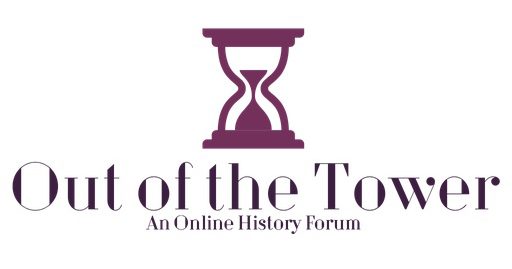Wow! It has been a while. I am sorry for the delay in posting. As I have written about before, things are crazy right now. My husband is traveling constantly, so I have been solo-parenting a lot. When I am not taking care of the kiddos, I have been focusing my energy on my book manuscript. (I do not have much of a life outside of parenting and writing. Seriously.) My goal is to have a reasonable grip on the manuscript before I send my proposal materials to the editor who I have been communicating with since last fall. Because the book has been taking up the majority of my time outside of parenting, I decided to do a post about writing tips and suggestions.
Full disclosure: I know very little about fictional writing. I have mostly dealt with academic research projects. I also know little about creating non-fiction works for popular audiences. (Well, outside of blogging, of course.) But, my hunch is that the actual writing process may not be that different for each genre. I could be completely wrong! So, if the content of this post does not appeal to you or apply to your work, carry on to one of my other fabulous posts. 😉
Have the Right Tools:
Through the course of graduate school, I learned (the hard way) that it is vital to have the right set of writing tools. I attended graduate school for a decent amount of time (two years for my master’s and six years for my PhD) and it took a while for me to figure out what materials, resources, and objects actually facilitate my writing. So, for starters, a giant white board is key for me. I am a visual learner. I like to “draw” out my arguments and points before I put them into words. I also use numerous legal pads for this purpose. (I usually start drawing thoughts out on the legal pad before moving to the white board.)
Over the years, I have learned to detest binders. I absolutely hate them. When you are trying to find a quote or piece of information quickly, thumbing through a three ring binder can drive you mad. So, I store the majority of my hardcopy research materials in file folders. I actually made my own finding aid for my files and file cabinets; I am a history dork and I have a lot of sources! I also like to use pencils for notes and jotting out ideas. Pens are too final for me; using them limits my confidence and my ability to think.
Finally, and perhaps most importantly, Zotero. I cannot write enough about the wonder that is Zotero. In the simplest of terms, it is an online research tool made by historians for historians. I am sure, though, that any person engaged in scholarly or academic work will find it invaluable. It is AMAZING! I don’t think I would have completed my dissertation without it. In another post, I explained (in detail) how I use zotero. But, here, I will note that zotero helped me to organize and categorize the sources that I gathered while going through over forty different archival collections as well as congressional documents, newspapers and magazine articles, books, and Supreme Court decisions. Since Zotero allows you to create an entry for each item, I was able to record the document type, location, and significance of each source. If you are in the midst of a major research project and the sheer volume of information that you need to organize overwhelms you, then I highly recommend that you check out zotero. 
Value Your Writing Time:
It infuriates me when an academic instructs others to make sure they write “just a bit” every day. Guess what? Some of us simply do not have the time or energy to commit to writing every day. I’m a stay-at-home parent and the primary caregiver of my two toddlers. Caring for them (many times singlehandedly) is a process that involves constant need and wish fulfillment for others. Not to mention that my youngest toddler has special needs that require me to have an incredible amount of resilience, patience, and energy. On the days that I don’t have backup or childcare assistance, I am beyond exhausted. On those days, I am lucky if I have time to sit at my computer (or even talk on the phone) while the kids are awake. And, on those days, after I have put them down to sleep (and if they actually stay asleep), I am too pooped to create anything meaningful; I’m lucky, if I have the energy to actually develop a list of reminders for the next day.
There is a point to this complaining, though. Since becoming a parent, I have learned that I cannot do it all by myself. I have also learned that my career goals and my research are too important to simply set aside. So, my husband and I have found ways (and are continuing to find ways) to ensure that I have time to work outside of parenting. We have hired a sitter to come a couple hours each week, which has been a true blessing. When my husband is not traveling, he takes over the lead parent role on the weekends and I bury myself in my office so that I can get some writing accomplished.
I’ll admit that it is hard to be constantly either working on my writing or caring for my children. Again, I have no social life right now. And, it is hard on my husband and me for our family to have little time together as a four-person unit, or even just one-on-one time between parents. But, this is our life for now and we are making it work.
The bottom line is that you don’t have to write every day. You do, however, have to make sure that your writing is important enough to you and your family, and that you are willing to sacrifice other things so that you can get it done. If you are like me, and your “day job” prohibits you from sequestering even just five minutes for valuable writing time everyday, then that is okay. It is actually more than okay; it is reality for many people. But, when you do carve out time to write, value it and use it to the fullest extent possible. 
Unhinge Your Thoughts:
This suggestion is probably going to be more convoluted than the others. But, here we go! I am ridiculously insecure about my writing and even my own thoughts. Countless times, I have been criticized for grammatical mistakes and unclear analyses. That’s life; especially life in the scholarly realm where people love to build themselves up by diminishing others (usually for the slightest possible errors).
What I have learned, though, (and I’ll admit, I am still learning this) is that you have to put the internal criticism aside. When I let the possible objections one might find with my work flood my thoughts, my mind stops and writing a simple sentence becomes an impossible feat. In order for me to put my ideas into words, I have to break free from any restrictions. When writing a first draft, or even just getting some notes out, I often tell myself that, for now, I need to forget about grammar rules and scholarly guidelines. I just need to get the thoughts into words, get those words organized, and get that organization into a coherent analysis. Obviously, the goal is to return to the rules and guidelines, and eventually put them onto the analysis. But, I need to get the analysis out first, and to do that I have to free my thoughts from my own insecurities. 
Find Support:
Finally, it’s important to develop a circle of support. I’m not just suggesting that you locate peers who will help you edit your work; that’s important. But, it is vital to have individuals who will also push you forward, cheer you on, and give you confidence in your work. I am the type of person who hates sharing drafts of my work with others, unless I am somewhat certain it is not a piece of crap. I hate to share my work when it is not completed or near perfection. Typically, when I show my work to someone for feedback, it is usually in its last stages and I am actually just looking for reassurance.
If I do show a draft to someone and they heavily edit it (without me requesting such a review), I become quite stressed out. My anxiety about my work overtakes me and, sometimes, I become too sensitive to move much farther along with the project. So, for people who are like me, it is important to locate a few individuals who you trust to provide you with feedback that is actually constructive (not just critiques for the sake of having something to say and to sound smart) and to also give encouragement that your work hasn’t been a complete waste of energy.
Okay, time to get back to my book proposal materials and manuscript. I hope this post provided useful information. For the writers out there, keep pushing along and moving forward with your work. Sometimes it may seem impossible and utterly pointless to continue on, but feeling pride in a piece of writing that you have completed is a reward that cannot be put into words.
~Rebecca DeWolf, PhD



